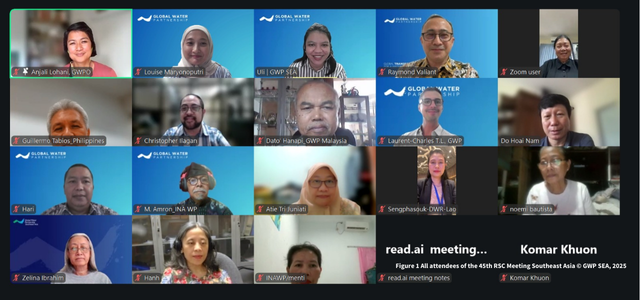Opening the session, Anjali Lohani of GWPO introduced the Global Transformation Agenda, launched last month at Stockholm World Water Week. The initiative seeks to unlock USD 15 billion in climate-resilient water investments worldwide, marking a shift from core grants to programmatic funding across the GWP network.
Another key focus of the meeting was strengthening the role of CWPs in advancing regional initiatives. Presenting findings from a recent e-survey, Raymond Valiant, GWP SEA Regional Coordinator, highlighted encouraging progress: 60% of CWPs have already implemented projects with local support, and 80% are preparing new initiatives for 2026. Members also agreed to establish a technical committee to build capacity, improve proposal development, and foster a more unified approach across the region.
Country representatives shared additional perspectives. Malaysia raised concerns about limited private sector engagement in policy-driven work, while Indonesia and Vietnam emphasized the importance of closer collaboration with government ministries. The Philippines introduced a new hybrid project idea that combines nature-based solutions with traditional engineering, in partnership with a wetlands organization.
The meeting concluded with a leadership decision: Thailand was unanimously selected to assume the RSC chairmanship from the Philippines. A three-member selection committee was formed to oversee the transition.
The next RSC meeting will take place in December to confirm the new chair and endorse the 2026 work plan, reinforcing the region’s commitment to resilient and sustainable water management.
